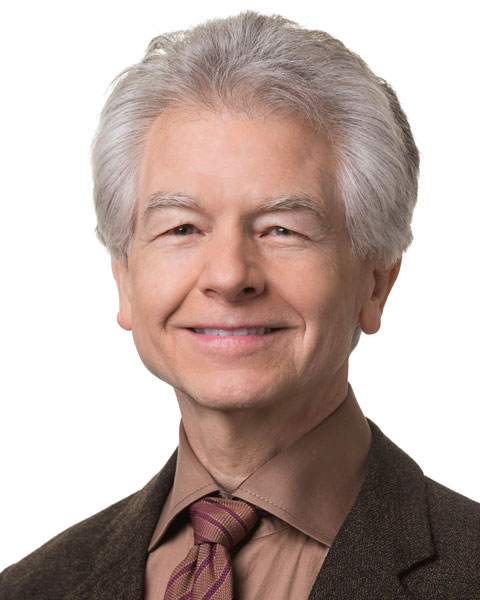
Evaluating Drug Dependence: Regulatory, Methodological and Clinical Challenges (1.5 CME)
- Registration Closed
Evaluating drug withdrawal effects is an integral component of dependence potential, which informs the overall safety, appropriate dosing, and scheduling of a drug. Understanding withdrawal phenomenon is critical in the care and management of patients who are physically dependent on medication or drugs of abuse. The methodological approaches to assess dependence continue to evolve and require careful evaluation of both preclinical and clinical data. Physical dependence can manifest from various drug classes including classes of drugs that are and are not associated with substance use disorder (e.g. beta blockers, corticosteroids). Preliminary approaches often include animal models to evaluate behavioral and physical manifestation of withdrawal, however translation to humans can be challenging. In the clinical setting, evaluation of withdrawal requires characterization of a drug's pharmacology to determine what type of symptoms may manifest upon abrupt discontinuation. Furthermore, rebound phenomenon resulting in a worsening of symptoms of the treated disease as a result of abrupt discontinuation, is also an important study assessment (Fontaine at et 1984). Study populations must be carefully considered, particularly in patient populations that cannot be safely withdrawn from study drug. Clinical trials must determine what population, duration of maintenance and endpoints are relevant for a given drug. For example, the time to establish dependence to a benzodiazepine can vary by drug type and dose and can range from 4 to 12 weeks (Mackinnon and Parker, 1982). Commonly adverse events and drug-specific withdrawal scales are included to evaluate withdrawal symptoms, however other pharmacodynamics measures may also be considered. The administration of endpoints and safety monitoring requires also practical considerations in the context of larger patient trials, where confined stays may not be possible following abrupt discontinuation. This workshop will address the regulatory and methodological considerations that are rapidly evolving in this active area of research and will cover case examples of studies examining drug withdrawal and dependence. In addition, the clinical relevance of dependency and mitigation of symptoms in the clinical setting will be discussed.

Beatrice Setnik
PhD
Dr. Setnik has been working in the area of clinical drug development and abuse potential (AP) assessment since 2005. Dr. Setnik is currently the Vice President of Clinical Pharmacology at INC Early Phase and an Adjunct Professor at the University of Toronto (Department of Pharmacology and Toxicology). Dr. Setnik earned her doctorate degree in Pharmacology and the Collaborative Program in Neuroscience from the University of Toronto in 2005. In her previous role as Senior Director, Clinical Sciences (King Pharmaceuticals and Pfizer, Inc), Dr. Setnik lead the clinical development, regulatory filing, and lifecycle management, including abuse potential evaluation, of several pain compounds including abuse deterrent opioid formulations. In her previous role as a Research Scientist (formerly Ventana / Decisionline Clinical Research, Toronto, Canada), Dr. Setnik was responsible for providing scientific input on various specialty phase I-II clinical trials including abuse potential studies for CNS drugs. Dr. Setnik has published numerous research articles in internationally recognized peer-reviewed journals and has presented at several scientific meetings and conferences. In addition, she chairs the clinical sub-team within the Cross Company Abuse Liability Council and has been an active member since 2008. Dr. Setnik is also an active member and participant in several congresses including the College on Problems of Drug Dependence. She has also been actively engaged in many aspects of abuse potential assessment including development of patient reported outcome instruments and contributing to post-marketing surveillance studies.

Jack Henningfield
PhD
Dr. Henningfield was trained in abuse liability assessment and related sciences in the Psychopharmacology Program at the University of Minnesota and the Behavioral Biology Program of The Johns Hopkins University School of Medicine in the 1970s. In the 1980s and 90s, at the National Institute on Drug Abuse (NIDA), he served as Chief of the Clinical Pharmacology Branch, and the Abuse Potential Assessment Section and contributed to NIDA's drug scheduling recommendations. In 1996 he left NIDA to consult on these issues with Pinney Associates to pharmaceutical developers.Dr. Henningfield is proud to be a recipient of the 1996 ASAM Annual Award "for expanding the frontiers of the field of addiction medicine and broadening our understanding of the addictive process, through research and innovation." He has published more than 400 articles and books related to addiction and contributed to NIDA's abuse potential assessment monographs in the 1980s, FDA's first draft guidance in 1990, and expert reviews and special conferences on abuse potential in the 2000s leading to FDA's 2010 draft guidance and the 2017 Final Guidance. His decades of research, product evaluation and contribution to regulation provide his expert perspectives on the science base, the regulatory implications, and the overall value of the Final Guidance. This Guidance, along with FDA’s 2015 Guidance on Abuse-Deterrent Opioid is among FDA’s many efforts to more effectively address substance abuse and overdose by improving new drug product evaluation and labeling. He has long advocated for comprehensive drug control approaches that move us closer to achieving the goal espoused by former Surgeon General C. Everett Koop, who stated it as follows in a 2003 National Press Club address: “We must greatly expand our efforts to help those with addictions so that getting treatment will be as easy as getting addictive drugs.” (Military Medicine, 2003).

Alicja Lerner
MD, PhD
Dr. Lerner has years of experience in neurology, neuroimaging and neuroscience research at NIH, University of Iowa and regulatory science at FDA. At NIH (2000-2008) the activity included the clinical and research fellowships at NINDS and NIMH where she participated in the development of about half a dozen of clinical research protocols as a Principal Investigator and co-investigator. This research resulted in published papers on neural networks involved in the Tourette’s syndrome, dystonia and suppression of natural urges as shown by positron emission tomography (PET) research studies. During the PhD program at the Dept. of Anatomy and Cell Biology at the University of Iowa (1991-1996) her research was focused on the revealing anatomical complexities of the neural circuits connecting cerebellum, thalamus and basal ganglia. Since 2008 she works at FDA as medical officer at Controlled Substance Staff, CDER, and her particular interest is a development of the most effective ways to evaluate dependence and withdrawal in the clinical trials during the drug development.
Dr. Lerner acquired the medical degree at Medical Academy, Warsaw, Poland, after which followed the internship in Poland, residency in anesthesiology in Germany, and residency in neurology in US, in North Carolina, and the fellowship in movement disorders and neuroimaging at NINDS, NIH.

Pierre Geoffroy
MDCM, MSc, FCFP, DABAM
Pierre Geoffroy is Vice President of Early Phase Research at INC Research in Toronto, where he is involved in early phase clinical trials and human abuse liability studies. Trained in Emergency Medicine and Family Medicine at McGill University in Montreal, he has pursued a career in both clinical research and medicine, allowing him to apply practical experience to clinical research for nearly 25 years. He also holds a Master’s degree in epidemiology from McGill and an MSc in Nutrition from the University of Toronto. While having directed late stage drug development for many years in large pharma, he has been involved in early phase research in several CROs in both in Canada and Japan for over 10 years. Dr. Geoffroy is a fellow of the College of Family Physicians of Canada and is board-certified in Addiction Medicine. He is an actively practicing physician in Toronto in both family medicine and addiction medicine and has a keen interest in human abuse liability testing in recreational drug users and the development of new medicines to combat the growing addiction epidemic.

